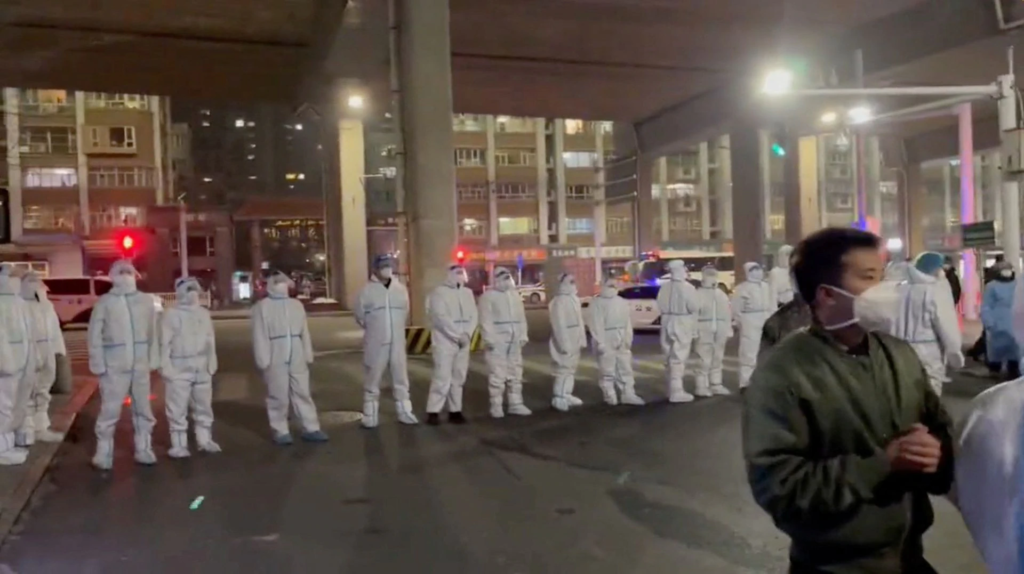3 years ago, Covid-19 rampaged into our lives, leaving a calamity rivaling no other in its wake. Thus, it’s not hard to understand why a regime would put up precautions––but when does caution become captivity? China once again hopes to enforce the Zero-COVID Policy, but the reestablishment of the severe restrictions is not supported by everyone.
Unforeseen Side Effects
On November 24, a fire in Urumqi killed at least 10 and injured 9 people. The high casualties were caused by a delayed arrival from the firefighters due to the lockdown enforced by the government. This tragedy was met with fierce resentment towards the lockdown, so much so that the government responded saying, “it would lift the lockdown in stages.” Regardless, they failed to give any specific dates or timeline for the removal.

The lack of information has enraged many citizens, encouraging them to take matters into their own hands. Just last weekend Chinese citizens came together in a peaceful protest hoping to tip the government’s hand into lifting the dangerous lockdown. However, the Chinese government would not be persuaded into softening the quarantine and so they have begun to track down the protestors using their advanced surveillance system.
Surveillance
The development of this system was always met with mixed feelings: some said that this was an invasion of privacy while others believed that if you have nothing to hide then you have nothing to fear. Although, this may not be true anymore as people have been warned, interrogated, and even detained.
Many protestors were wary of the government’s surveillance and so decided to cover their faces against the camera and facial recognition tech. Nonetheless, they were caught out using another branch of the system. These miniature boxes can mimic “a cell tower, they connect to the phones of all who pass by, and record the data for the police to check.” This information was able to be used to track citizens and warn them against further protests.



All in all, this new technology, if used in the right way, could be a defense years ahead of its time, but used in the wrong way it can––and has––strip people of their privacy.


